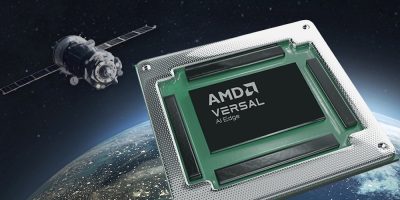Versal AI adaptive SoC is qualified for space flight
AMD has announced the second Versal adaptive SoC to be qualified for space flight. The Versal AI Edge XQRVE2302 is offered in a 23 x 23mm package. It has nearly a 75 per cent smaller board area and power savings relative to the existing Versal AI Core XQRVC1902.
The XQRVE2302 is one of the first Versal devices to integrate enhanced AMD AI Engine (AIE) technology (AIE-ML). This technology has been optimised for machine learning (ML) applications by offering extended support for data types prevalent in ML inferencing (INT4 and BFLOAT16), explained AMD. Developers can convert raw sensor data into useful information, making the XQRVE2302 suitable for anomaly and image detection applications.
In contrast to other radiation-tolerant FPGAs, XQR Versal adaptive SoCs support unlimited reprogramming during development as well as after deployment, said AMD. This includes in-flight in the harsh radiation environment of space. The security features of the Versal Adaptive SoC help prevent tampering and unwanted configuration changes, helping satellite operators safely change processing algorithms after a satellite has been launched.
The radiation tolerance of the XQR Versal SoC devices has been tested by AMD and independent organisations and has been determined to be capable of supporting missions from LEO (low earth orbit) to GEO (geosynchronous earth orbit) and beyond.
Commercial pre-production devices are currently available and flight-qualified parts are expected to be available in late 2024.




